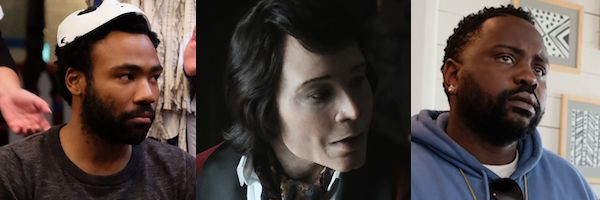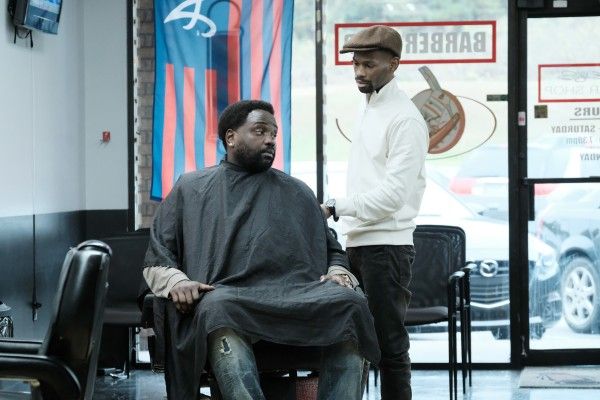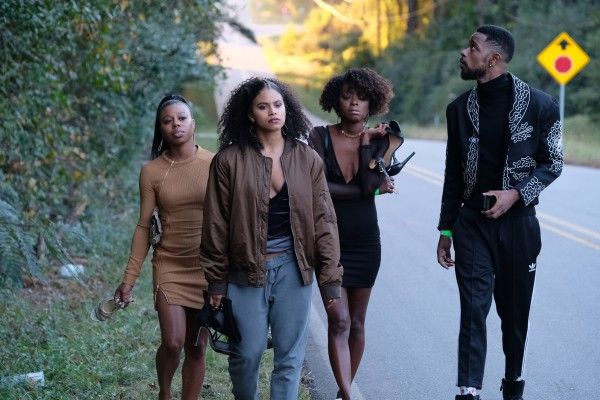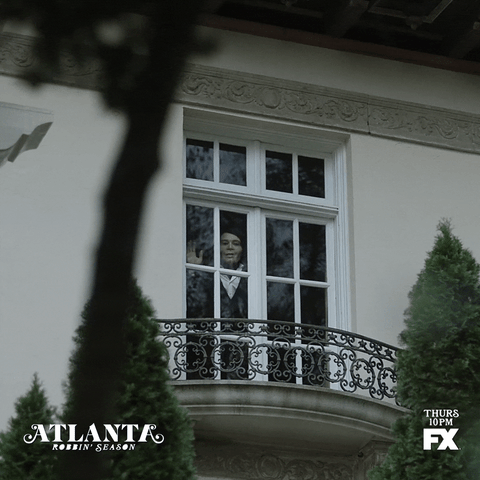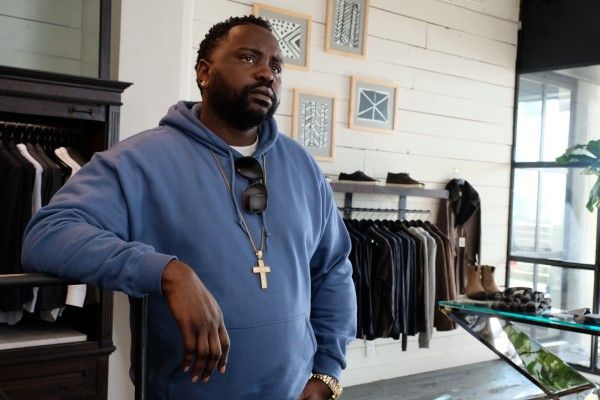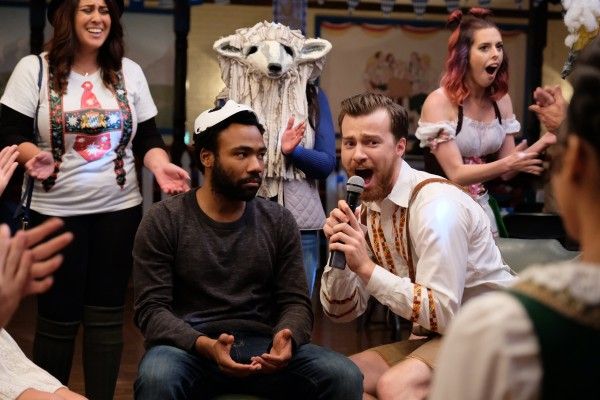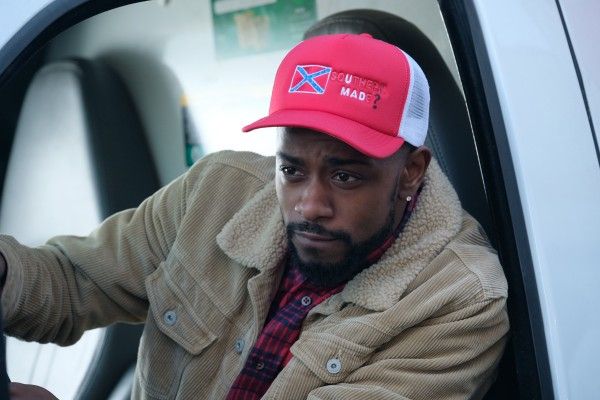From the very start of its second season, there was something palpably more tense, more surreal, and a little harsher about Atlanta: Robbin’ Season. Part of that came from the bursts of violence from actual thefts, but as the season has progressed what’s been lost or taken has often been more metaphorically — and terrifyingly — rendered. In Season 2, Atlanta arrived even more stylish, confident, and thematically connected that its first (still exceptional) run of episodes. But the most major change has been how its leaned so heavily into horror.
There’s always been something uneasy and uncanny about the world that Donald Glover has created here, aided by writers like his brother Stephen Glover and Stefani Robinson, and directors Hiro Murai and Amy Seimetz. But Season 2 (perhaps under the influence of Get Out, which was released just as the new season was being written) has taken that to new levels. From the Alligator Man's house with the police outside, to the strip club full of stuntin', every episode has been a house of horrors. It escalated with the German demon thief / laughing murder wolf that haunts Van (Zazie Beetz) when she and Earn (Glover) visit the Georgia alpine village of Helen (which is, incidentally, a real place). And while there were some traditional beats to that story, as Van is accosted in a dark alley, there were far more non-traditional ones (like that creepy, creepy laugh). Similarly, “Teddy Perkins” introduced us to the horror show that was Teddy Perkins himself (also Glover), as Darius (LaKeith Stanfield) became trapped inside what turned into a house of death and ostrich eggs.
The choice to run that episode without commercial interruption aided in the feeling of being trapped, yet its a theme also found in an episode as seemingly innocuous as “Barbershop.” There, Paper Boi (Brian Tyree Henry) just wants to get his hair cut, and ends up being dragged by his barber Bibby (Robert Powell III) all over town in a way that he can't seem to escape. Frustration (and a lot of humor) fueled this episode, but there were still visual touchstones of horror that worked in concert with that, like after Bibby rear-ends a woman who exits her car, stands up, and then just stands there, frozen, screaming. The two drive away to continue their urban odyssey on the run, with the screams fading into the background.
Even in last week’s “Champagne Papi,” Van finds herself in an uncomfortable place with a stranger inside Drake’s house during a party, and ends up lost inside the mansion. There’s a sense of dread that permeates the entire episode, because that’s what Atlanta has taught us to anticipate. Something may happen, nothing may happen, but there’s a constant tension of uncertainty. Eventually Van emerges to find things changed: No one famous is there, people are taking pictures with cutouts, and Drake is actually Mexican. Almost every episode of Atlanta: Robbin Season has seen its characters accidentally enter these dream-state/nightmare portals that ultimately reveal something new and different about the world around them -- for better or worse.
Never has that been more obvious than in the journey Paper Boi takes during “Woods.” He wants to stay real and avoid the fake life of a celebrity, but he’s challenged on this by his friend Sierra who tells him that he’s on the radio and making tons of money — that’s not the real world. On Paper Boi’s journey back home (on foot, after he leaves Sierra behind), he’s accosted by some teens who first act as fans, but then take the opportunity to rob him (also on theme). From there he goes through the woods -- his portal -- and is lost and alone, except for a homeless man who follows him and ultimately threatens him. When Paper Boi emerges, he’s scared, broken, and changed; a white fan asks for a picture, uninterested in how beat-down he looks, and Paper Boi not only takes several with him willingly, he even counsels him on doing a better pose.
These last three episodes have each shown a dark, hollow side of fame, but also specifically comment on fame for black celebrities. “I’ve gotta compete with white girls with lip fillers and butt injections, selling lip gloss and spray tans,” Sierra tells him. “Everybody wanna be a black girl, but the black girls ain’t making no money from it.” “Teddy Perkins” of course was a Michael Jackson-inspired tale that illustrated a fraught relationship between success and race, one that “Champagne Papi” challenged in another way when Van’s friend went off on a black celebrity for having a “cliché” white girlfriend (who she also calls out, and from whom she gets a thoughtful response). It all plays into a larger sense of never feeling safe or settled, that maybe losing your fame or your cred or your money is just around the corner.
Atlanta has always been a show that’s about more than just a city, though its stories this season do mirror this particular one. There’s something that has to be overcome, proved, with a struggle of justification to get to each new level. But Atlanta also takes it further: how do you seek success and stay true to yourself? These characters look for fame, but they don’t count the cost. And the horrors they find are always connected to those who have become lost in it. John Updike once wrote that “Celebrity is a mask that eats into the face.” It's also, in Atlanta's world, a house or horrors. “Be safe out here.”
Atlanta airs Thursdays on FX.

